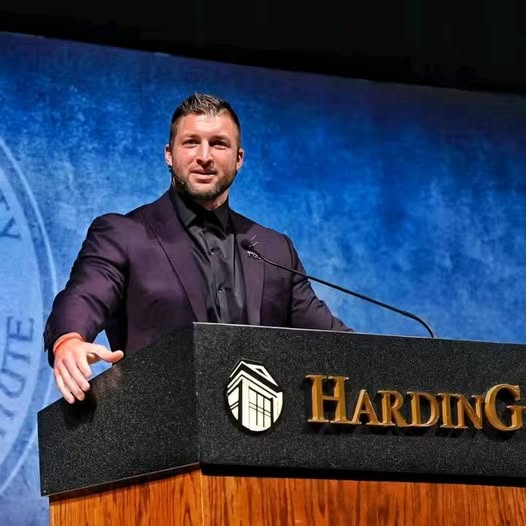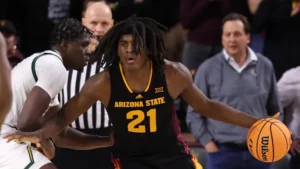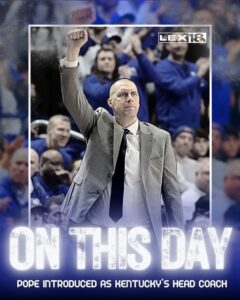Tim Tebow Returns to College Football: New Role in the NCAA Following College Football Hall of Fame Induction

Tim Tebow Returns to College Football: New Role in the NCAA Following College Football Hall of Fame Induction
Tim Tebow, one of the most iconic and polarizing figures in the history of college football, has once again made headlines, but this time for a new role in the sport he helped redefine. Following his induction into the College Football Hall of Fame, Tebow has announced that he will be returning to the NCAA, albeit in a significantly different capacity. The former Florida Gators quarterback, known for his leadership on the field, his unwavering faith, and his larger-than-life personality, is poised to take on a new challenge as part of the NCAA’s initiative to revamp college football and provide a fresh perspective on the game’s evolving landscape.
This article explores the significance of Tebow’s return, the new role he will play in college football, and the broader implications of his transition from player to advocate, mentor, and figurehead for the next generation of athletes.
Tim Tebow’s Legacy in College Football
To fully understand the magnitude of Tebow’s return to college football, it’s essential to reflect on his monumental impact on the sport. From 2006 to 2009, Tebow’s tenure at the University of Florida solidified his place as one of the greatest college football players of all time. His career was marked by numerous accolades, including the prestigious Heisman Trophy in 2007, a national championship in 2006, and two more in 2008 and 2009.
Tebow’s style of play was groundbreaking. As a dual-threat quarterback, he combined a powerful arm with a bruising physicality that made him an exceptionally hard player to defend against. His ability to run the football as well as pass it opened up new possibilities for the quarterback position. But it wasn’t just his physical skills that made Tebow a household name. His leadership, unwavering commitment to his teammates, and his message of faith and perseverance made him an icon not only in Florida but across the entire country.
Perhaps most famously, Tebow was known for his unshakable belief in himself and his team. He famously declared after a heartbreaking loss in 2008 to Ole Miss, “You will never see a team play harder than we do,” and throughout his college career, he backed up that promise. His competitive fire and ability to overcome adversity resonated with fans and players alike, and his “Tebowing” pose—kneeling in prayer after scoring a touchdown—became a viral symbol of both his faith and his unyielding spirit.
With a career that included a Heisman Trophy, two national championships, and countless game-winning moments, Tebow’s legacy as a college football legend is firmly entrenched. His time at Florida was a blueprint for what a quarterback could achieve in college football, and his contributions to the game will not soon be forgotten.
The College Football Hall of Fame Induction
In 2025, Tim Tebow was officially inducted into the College Football Hall of Fame, an honor that further cemented his status as one of the greatest to ever play the game. The induction ceremony was a culmination of a career that spanned the highest peaks and challenging valleys of college football. Tebow’s recognition was a moment for reflection on his remarkable achievements but also served as a reminder of the lasting influence he continues to have on the sport.
The Hall of Fame induction brought together past and present football legends, and Tebow’s speech was filled with gratitude and recognition of the people who helped him throughout his journey. He acknowledged his coaches, teammates, and family members, giving particular thanks to his parents for instilling in him the values that shaped his life both on and off the field. It was clear that his role in the Hall of Fame was not simply as a player who excelled on the field but as a figure who had used his platform to inspire and uplift others.
The induction is also significant in the context of college football’s changing landscape. As the game evolves with NIL (Name, Image, Likeness) deals and the expanded playoff structure, Tebow’s induction was a poignant reminder of how much college football has grown and shifted over the years—and how much his own career helped shape the modern game.
Tebow’s New Role in the NCAA: Mentorship and Advocacy
Following his Hall of Fame induction, Tebow announced that he would be returning to the NCAA in a new, multifaceted role. While details of his exact responsibilities are still being finalized, the overarching theme is clear: Tim Tebow is coming back to college football not as a player, but as a mentor and advocate for the next generation of athletes.
Tebow’s new position will primarily focus on supporting college football players in their development both on and off the field. With the rapid evolution of college sports, especially with the introduction of NIL deals, the NCAA has recognized the need for more holistic support for student-athletes. Tebow’s role will likely include several key responsibilities:
-
Mentorship Programs: Tebow has always been a beacon of leadership, and his new role will allow him to provide mentorship to college athletes, offering guidance on how to navigate the pressures of being a student-athlete. Whether it’s managing media attention, balancing academics with athletics, or handling the growing financial aspects of NIL deals, Tebow’s insights will be invaluable to young players.
-
Advocacy for Student-Athletes: Tebow has long been an advocate for using athletics as a platform for personal and professional growth. His focus in this new role will be to advocate for policies and initiatives that put the well-being of student-athletes at the forefront. This includes fighting for mental health resources, better financial literacy education, and ensuring that the integrity of the college experience is not lost amid the commercialization of college sports.
-
Youth Development and Leadership Initiatives: Beyond the college level, Tebow is expected to be involved in leadership initiatives that target younger athletes. By using his platform, Tebow aims to foster a culture of leadership, hard work, and integrity among high school and middle school athletes. This would be part of an effort to prepare athletes not only for college football but for life beyond the game.
-
Public Speaking and Media Roles: Tebow will also continue to make appearances in media, sharing his thoughts on college football, leadership, and faith. His role as a commentator and advocate will allow him to continue influencing the game while staying engaged with fans and players. As a seasoned media personality, his insights will likely be sought by broadcasters, coaches, and organizations that aim to make college football more accessible and inclusive.
Why Tim Tebow’s Return is Crucial for College Football
Tebow’s return to college football comes at a time of significant change in the sport. The introduction of NIL deals, the expansion of the College Football Playoff, and the increasing commercialization of college athletics have left many student-athletes facing challenges that past generations did not. While many of these changes are positive, they also come with increased scrutiny, pressure, and distractions that can detract from an athlete’s ability to focus on their studies and personal development.
Tebow’s presence in this new role will provide a guiding light for student-athletes struggling to navigate these waters. He is someone who has faced immense pressure and succeeded, not only as a player but as a person. His experience of balancing faith, education, athleticism, and public scrutiny makes him uniquely equipped to provide the kind of support and guidance needed by today’s student-athletes.
Moreover, Tebow’s faith and character have always been central to his identity. In an era where athletes are often viewed through the lens of their athletic performance or their ability to generate revenue, Tebow remains a symbol of what it means to be a role model both on and off the field. His return to the NCAA represents a shift towards the idea that college football is about more than just touchdowns and victories—it’s about the development of young people who will go on to become leaders in all areas of life.
The Impact on College Football’s Future
Tebow’s influence on college football will undoubtedly extend far beyond his new role in the NCAA. His advocacy for student-athletes, particularly in terms of mental health, NIL education, and leadership development, will have a lasting impact on the sport. Additionally, his involvement in the sport’s evolving landscape will serve as a bridge between the traditional values of college football and the modern realities of the game.
As the NCAA continues to evolve, Tebow’s presence will be a reminder of the human side of college sports. He will continue to inspire athletes to strive for excellence not only in their sports but also in their personal lives, cultivating a new generation of leaders, both on and off the field.
In a way, Tim Tebow’s return to college football is not just about the game—it’s about shaping the future of college sports for the better. And if his past is any indication, Tebow will undoubtedly continue to make a profound impact on the sport he helped shape.





